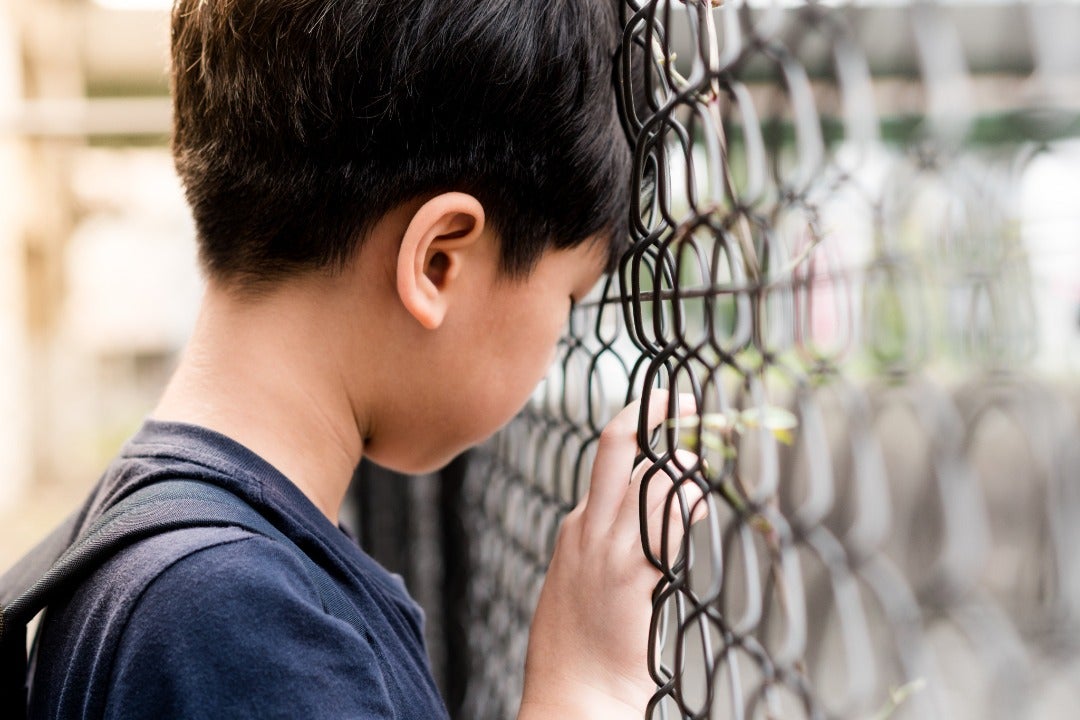In Real Life is a platform for everyday people to share their experiences and voices. All articles are personal stories and do not necessarily echo In Real Life’s sentiments.

Childhood depression is different from the normal “blues” and everyday emotions that children go through as they develop. Just because a child seems sad doesn’t necessarily mean they have significant depression. It is not uncommon for children to sometimes be frustrated, lost or generally “blue”. But if the sadness becomes persistent or interferes with normal social activities, interests, schoolwork, or family life, then it may indicate that the child has a depressive disorder.
Keep in mind that while depression is a serious illness, it’s also a treatable one – but it does require proper action to be taken as ignoring it will not help your child or magically cause their illness to disappear. In fact, this will cause the depression to worsen, and will breed resentment in the child towards their parents.
Depression is a mood disorder that negatively impacts a person’s emotions, thinking and behaviours. Depression is known to be the most common mental health illness in Malaysia and is more commonly found in adults, although children are not an exception.
Research has shown that in Malaysia childhood depression has a prevalence of 0.3% to 7.8% for children below 13 years old. Given this rate of occurrence, it is crucial for parents to be vigilant of the signs and symptoms of childhood depression.
Signs and symptoms

Children with depression can exhibit varying symptoms, but there are three main areas where symptoms can typically be observed: mood, behaviour, and cognition.
Some typical symptoms include:
- i) Changes in Mood:
- Easily irritable and angry
- Feelings of sadness, emptiness and hopelessness
- Feeling fatigued and tired
- Restless and agitated
- Feeling worthless and excessive guilt
- ii) Changes in Lifestyle / Behaviours:
- Withdrawal from significant others, friends and family members
- Poor school attendance or decreased academic performance
- Loss of interest in activities he/she previously enjoyed
- Changes in appetite (increase or decrease)
- Changes in sleeping patterns (sleeping more or less)
- Physical complaints and aches that do not respond to medical treatment
- Self-harm
iii) Changes in Cognition:
- Difficulty in making decisions
- Difficulty paying attention when performing everyday tasks in school or at home
- Thinking negatively about him/herself or events happening around them
- Thoughts of death or suicide
Stigmatisation is real

It is true that mental illness is often stigmatised by society, and even more so for children with mental health issues. It is often wrongly perceived that children with depression are simply seeking attention, or worse, that they are dangerous to others and themselves. Other adults or teachers might also form negative perceptions towards parents of children with depression.
These are just some examples of stigmatisation that stop parents from seeking help from mental health professionals. The fear of being judged might also prevent children from sharing their feelings with parents and caregivers, isolating the child even more.
What can be done to help?

Did you know that befrienders kl also provides services for children?
i) Fostering an open and positive environment for communication within the family
Parents often view mental health as taboo, especially in Malaysian culture, limiting their children’s opportunity to discuss their feelings with them. Children can also develop a skewed perception of mental health: that it is something that only happens to others, and not themselves or the people they know.
Parents can, however, promote an environment that allows open communication with their children about their emotions and feelings. It is important to help children understand that no emotions are “bad” – instead they serve as an important indicator of their well-being. When talking about depression, parents can help their child further understand that it can affect anybody, adults and kids alike.
Parents can also share their own difficult experiences with their children, showing them that it’s normal to feel vulnerable and to seek help from others. Being patient and listening carefully will encourage children to be more open in sharing their thoughts and feelings.
ii) Monitor changes in behaviour of children in various settings
Children, especially those under the age of 6, have more difficulty verbalising their feelings, so it is important for parents to observe their child’s behaviour carefully.
It is also important for parents to receive feedback from teachers and other caregivers about their child’s behaviour and academic progress in school. Working in collaboration with teachers can further expand the child’s support system and allow them to access mental health services like school counselling and educational aid that the school may provide.
iii) Seek help from professionals
It is important to remember that depression is treatable with the right support! Therefore, it is important for parents to consult a mental health professional, such as a psychiatrist or clinical psychologist, to get an evaluation of their child’s condition and also recommendations on treatment and intervention. Interventions could involve therapy with specific approaches like Cognitive Behaviour Therapy, medication, or a combination of both.
Visiting a pediatrician or the family’s general practitioner would also help rule out other physical illnesses that may induce depression-like symptoms. Doctors can also provide referrals to mental health specialists suitable for the child’s needs.
Depression in children should not be taken lightly. It’s important for parents to prioritise their child’s mental health along with their physical health.
By knowing the signs and symptoms of depression in children, parents can access intervention to support their child’s mental well-being. This helps parents to become better parents for their kids, and most importantly, it helps to guide the kids on their paths in life.
For more stories like this, read: These Malaysians May Not Want Children – Here Are Their Reasons Why and I Was Born Deaf. Here’s My Experience in Malaysian Government Schools.
You might also like
More from Real Mental Health
“I Was Scared of Waking Up in Handcuffs,” shares Depressed M’sian on Repealed Law
In 2023, Malaysia repealed Section 309, a colonial-era law that made suicide attempts a crime. The change marked a shift …
‘Everyone Saw A Successful Student While I Was Crumbling,’ Shares 22 Year Old Student
This is a story of a 22 year old woman who shared her story as a Straight A’s student as …
5 Harmful Mental Health Myths Malaysians Still Believe
Let’s break down five of the most common myths Malaysians still believe, and why it’s time to let them go.


















